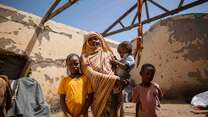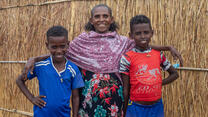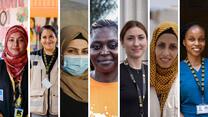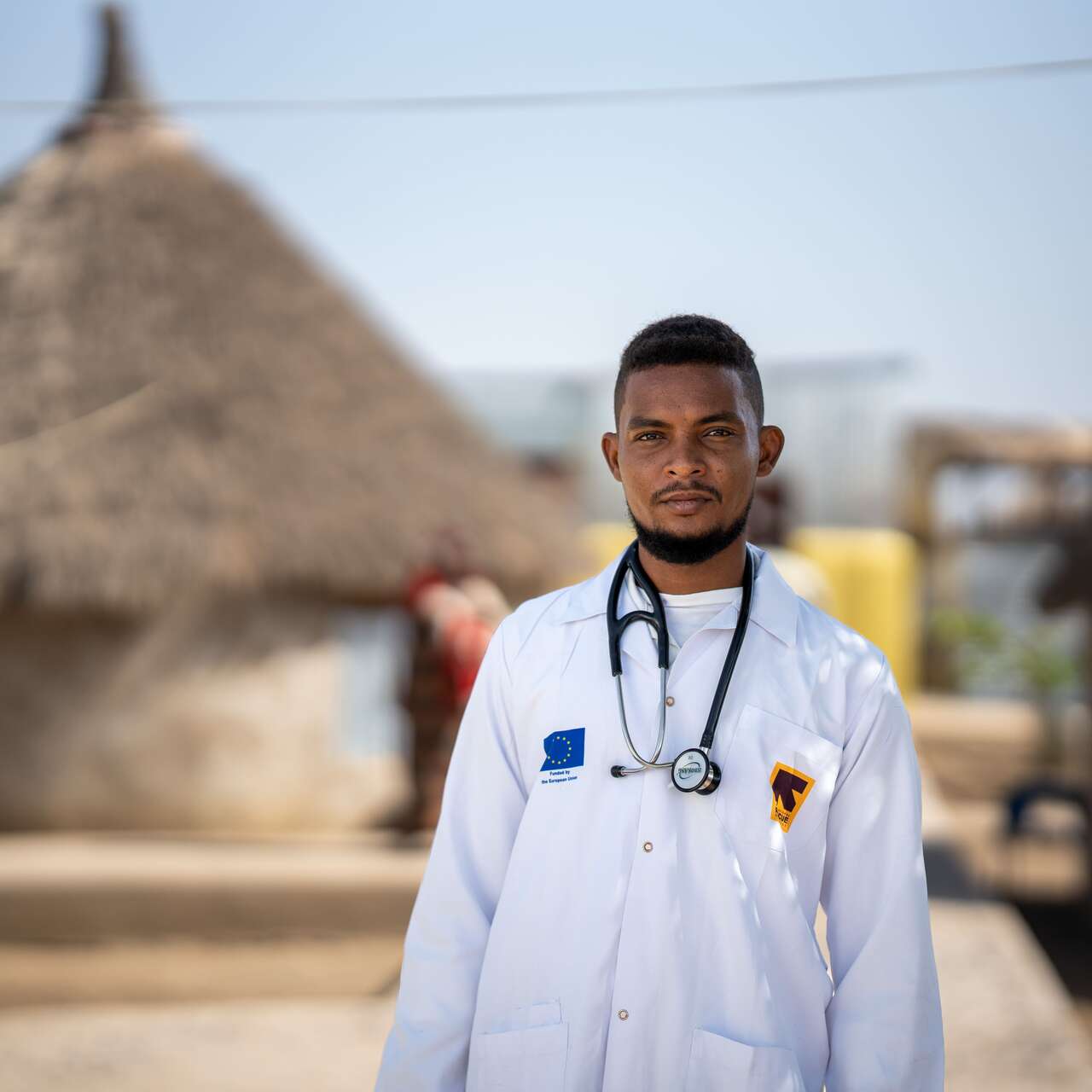
Since the conflict in Sudan erupted in April 2023, the Sudanese people have endured immense hardship, including widespread displacement and a severe humanitarian crisis. Today, 30.4 million people—64% of the population—urgently need humanitarian assistance, while approximately 14.6 million are displaced.
Amid the ongoing conflict, a medical doctor has committed himself to supporting those in most need.
Dr. Mogahed Ilkeet, 29, has been working for the past two years with the International Rescue Committee (IRC) through its program funded by the European Union (EU). Initially focusing on providing aid to Ethiopian refugees affected by conflict, the situation shifted dramatically in April 2023 with increased armed conflict in Sudan. Presently, the majority of Dr. Mogahed's patients are Sudanese people displaced within their own country.
Dr. Mogahed’s work is relentless. Each day, he treats around 50 patients suffering from chronic illnesses, fevers, and malnutrition, while also addressing mental health concerns. But his workload doesn’t stop there—at any moment, he may have to drop everything to handle life-threatening emergencies, adding even more pressure to his already demanding role.
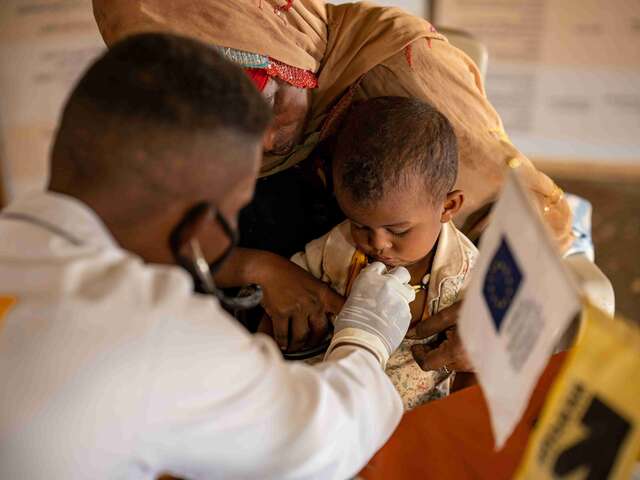
From displacement to dedication
Dr. Mogahed works at the Tunaydbah internally displaced person (IDP) and refugee camp in Eastern Sudan, where the IRC continues to provide its support. Situated relatively close to the Sudanese-Ethiopian border, the camp has witnessed a continuous influx of IDPs and refugees.
The refugees continue to face immense challenges in accessing even the most basic necessities, a situation made even more dire by the recent surge of displaced Sudanese people seeking refuge in the camp.
Mogahed himself was displaced and deeply understands how conflict can impact the lives of loved ones.
“When the conflict extended and reached Al Jazeera state, millions of people were forced to flee Al Jazeera and my family is not an exception, unfortunately.”
His family fled from northern to western Al Jazeera State in east-central Sudan. The state’s capital, Wad Madani—Sudan’s second-largest city—had served as a refuge for around 500,000 people displaced from Khartoum during the conflict’s first two months. However, they were forced to evacuate again due to rumors that the fighting would spread westward.
The conflict has deeply affected his entire family.
Dr. Mogahed witnessed people fleeing their homes barefoot, walking 25 to 30 kilometers in search of safety.
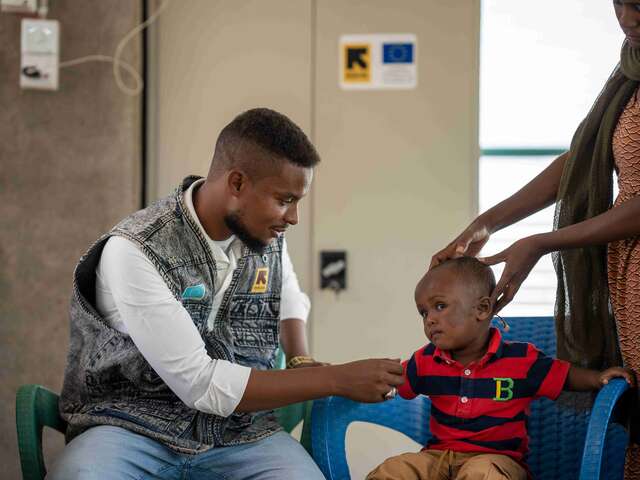
He saw the dire condition they were in, with their feet severely injured, but this only strengthened his commitment to his work.
“So now I feel what they feel, and I am happy that I was already providing this service and willing to continue this.”
Mogahed’s decision to join the IRC and continue working with them is driven by their focus on humanitarian settings, especially during emergencies when patients and clients are in the greatest need.
The IRC and the EU in action: combating child malnutrition
Beyond the Sudanese community, Dr. Mogahed remains committed to supporting the vulnerable populations residing in the camp, including Ethiopian refugees such as Almas Gowramskil and her family.
Almas, a 33-year-old mother of three, was forced to leave her home several times, first from Ethiopia and then from Sudan due to the ongoing conflict.

“The reason we left was fear.”
With food scarce, Almas struggled to provide for her children. Her young son, suffering from malnutrition, grew weaker by the day. At the IRC camp, she finally found help. The team provided medical care, and within three weeks, her son’s weight increased from five to six kilos.
Despite everything, Almas holds on to hope—for herself, her children, and a future beyond war, both in Sudan and Ethiopia.

The IRC is tirelessly working to address the immediate needs of those affected by conflict and displacement. In Sudan, our programs—supported by the European Union's humanitarian aid—serve as a beacon of hope not only for countless Sudanese people but also for families like Almas’s, who have endured multiple conflicts.
Through the unwavering efforts of those like Dr. Mogahed Ilkeet, the IRC continues to deliver life-saving medical care, combat malnutrition, and support the mental health of vulnerable populations.
The International Rescue Committee partners with the European Union to provide life-saving support to people caught in conflict and disasters around the world. Our work funded by the EU enables people to survive, recover and rebuild their lives.

